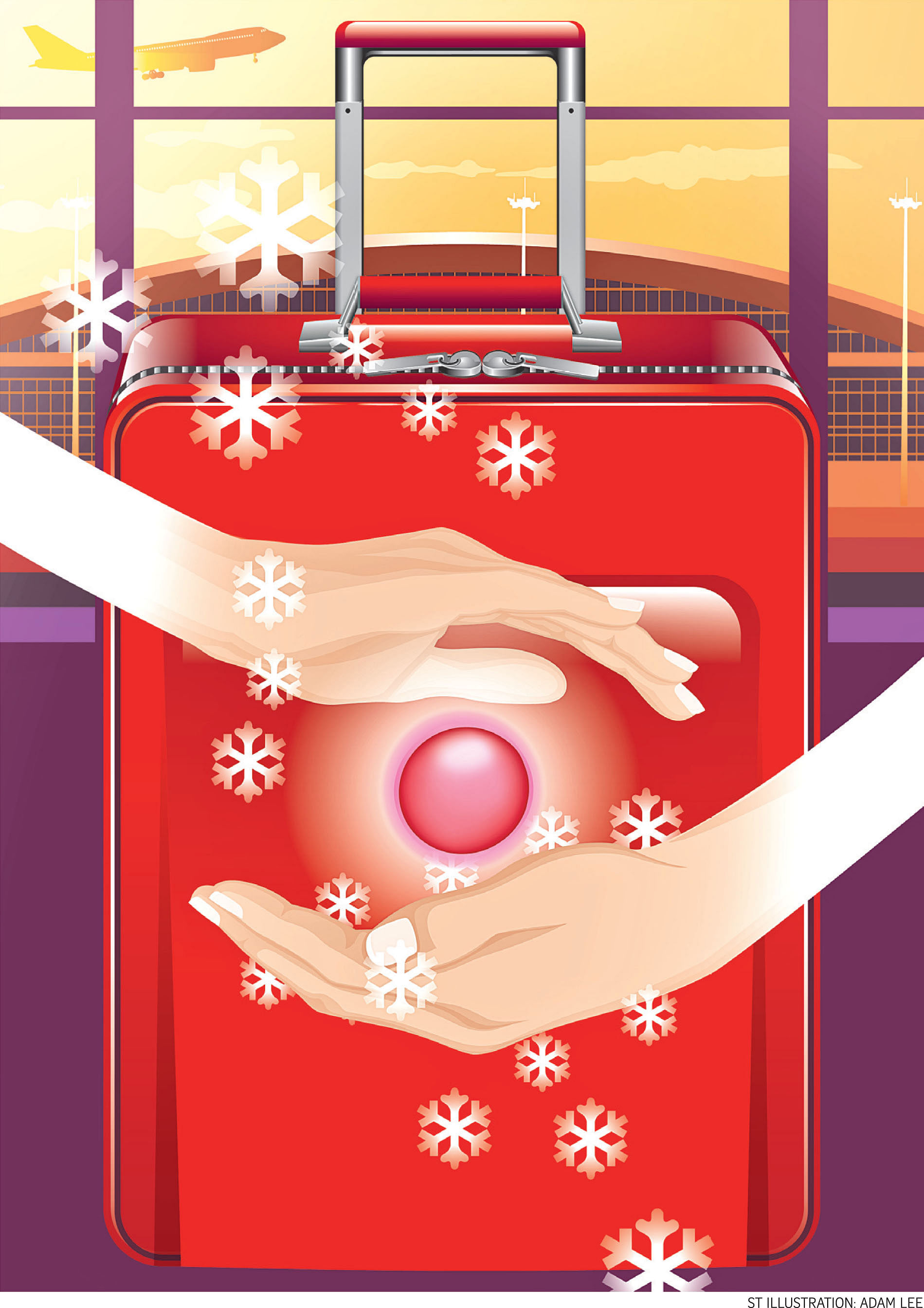More single women freezing their eggs overseas
Professionals in mid-30s to early 40s opting for procedure, which is generally not allowed here
Sign up now: Get ST's newsletters delivered to your inbox
A small but growing number of single Singaporean women are heading to Malaysia, Thailand and Australia to preserve their fertility, in the hope of having children when they finally marry Mr Right.
These women - professionals in their mid-30s to early 40s - are getting their eggs frozen abroad as the procedure is not allowed here, except on medical grounds.
Only women with medical needs, such as cancer patients who have to undergo chemotherapy that will adversely affect their fertility, are allowed to freeze their eggs.
Dr Helena Lim of the KL Fertility Centre in Kuala Lumpur sees one to two women from Singapore each month who want to freeze their eggs - compared with none five years ago.
"It's not that these women do not want to settle down. But they have no Mr Right on the horizon and are not willing to settle for less when it comes to marriage, " she said.

Egg freezing was raised in Parliament last week when Tampines GRC Member of Parliament Cheng Li Hui asked if the Health Ministry would consider allowing healthy women to freeze their eggs so they have a better chance of having children later, given that more women are marrying and starting families at an older age.
In a written reply, Health Minister Gan Kim Yong said that besides the risk of complications from the procedure and risks associated with pregnancy at an older age, there are social and ethical implications to be considered as well.
"The expectation that egg freezing guarantees fertility preservation might not be met, thus resulting in greater disappointment for couples who delay marriage and parenthood and yet are later not able to conceive using this method," he said. "They will be left with few alternatives then."
Miss Cheng told The Sunday Times she raised the question as she felt women should have the choice to freeze their eggs. She also wanted to get an update from the ministry, which said in 2012 that it was reviewing the medical, scientific and ethical implications of egg freezing.
Mr Gan said the ministry will continue to monitor international developments in the field and review its position by taking into account the medical and social implications of egg freezing, as well as the prevailing societal norms and values.
Separately, a ministry spokesman told The Sunday Times that licensed institutions and medical practitioners here found providing such services "without appropriate medical indications" can be prosecuted.
If convicted under the Private Hospitals and Medical Clinics Act, they may face fines "and possibly suspension or termination of the Assisted Reproduction services".
Medical practitioners will also be referred to the Singapore Medical Council for disciplinary review.
Fertility centres in the region such as the KL Fertility Centre and Sunfert International Fertility Centre in Kuala Lumpur, Safe Fertility Centre in Bangkok and Virtus Health in Australia say they are seeing more Singaporean women.
Virtus Health, which runs the Melbourne IVF and other fertility centres in Australia, sees several Singaporeans a month now at its centres, compared with five years ago when it saw a few Singaporeans each year. Sunfert sees one to two Singaporeans a month now, compared with five years ago when it was just a few each year.
The Sunday Times understands that some women even go to the United States for the procedure.
Dr Wong Pak Seng of Sunfert said one reason for the growing demand is that a newer method called vitrification has boosted the success rate of the freezing procedure.
In 2012, the American Society for Reproductive Medicine removed the "experimental" label from egg freezing. It found that advances in techniques led to pregnancy rates comparable to in vitro fertilisation (IVF) cycles that use fresh eggs.
Doctors note that a woman is born with a finite number of eggs, with the number and quality of eggs declining as she ages. By age 40, she has only 3 per cent of the up to two million eggs that she was born with, says a study by the University of St Andrews and the University of Edinburgh.
Hence, freezing the eggs at a younger age preserves her fertility. When she has found Mr Right and is ready for children, the eggs are thawed and fertilised with her husband's sperm. The resulting embryo is implanted in her womb.
Most of the Singaporean women who had their eggs frozen are unattached or have a boyfriend, but are not ready to marry for various reasons.
A minority are married. A common reason for egg freezing in such cases is that the women, or their husbands, are undecided about having children just yet.
Egg freezing is a costly procedure.
In Malaysia, centres contacted by The Sunday Times charge between RM15,000 (S$5,000) and RM20,000. Storage fees are an additional RM1,000 or more a year.
It costs about A$11,000 (S$11,300) for one cycle of egg freezing at Virtus Health in Australia, excluding the A$500 annual storage fee.
Doctors cautioned that egg freezing does not guarantee a baby. Whether a woman gets pregnant depends on various factors, including at what age she froze her egg, its quality and the quality of the sperm.
Said Dr Ann Tan of the Women Fertility and Fetal Centre: "Egg freezing is a form of biological insurance. You may not use the eggs you froze or you may not get pregnant when you decide to use them. Women should be adequately counselled about the procedure and its pitfalls."


